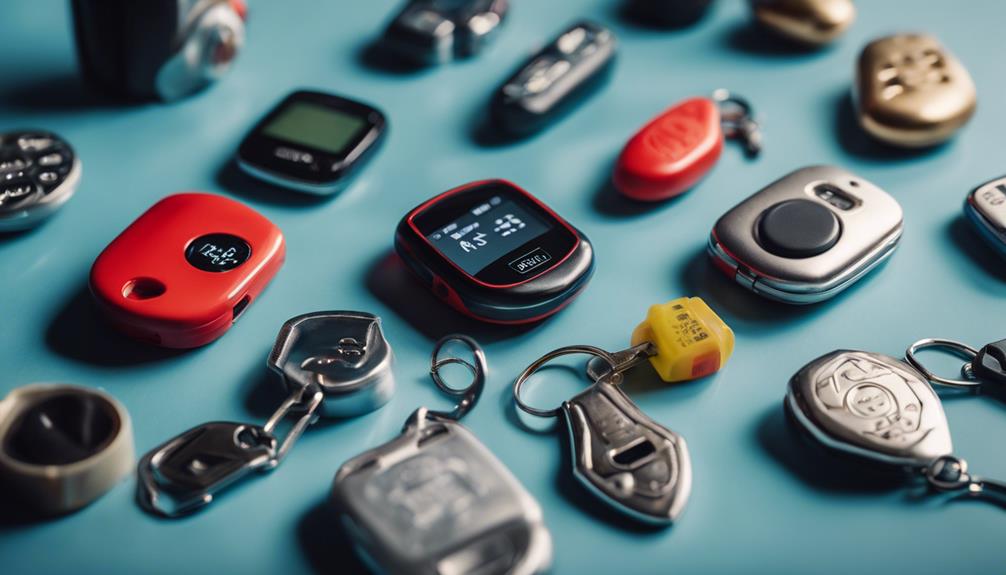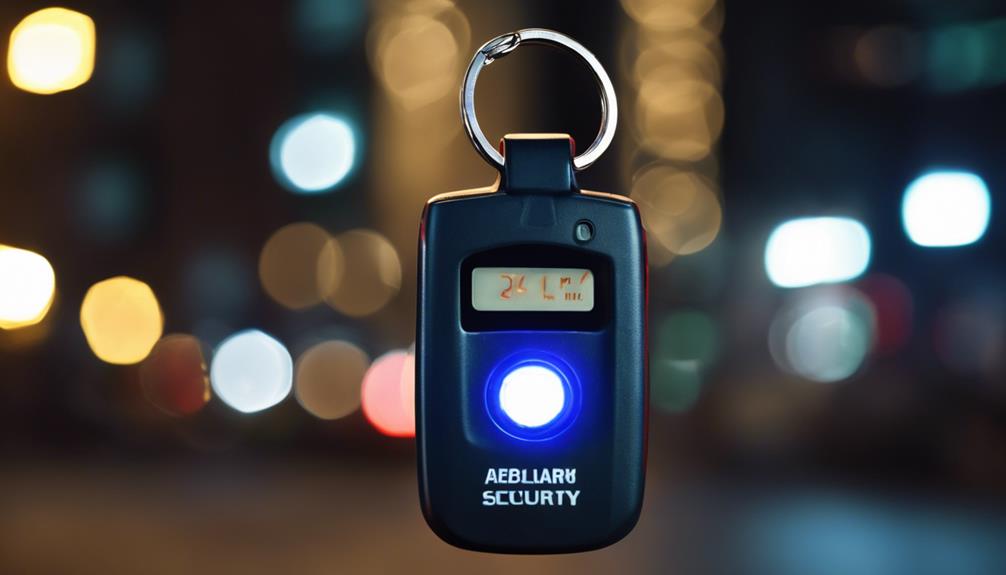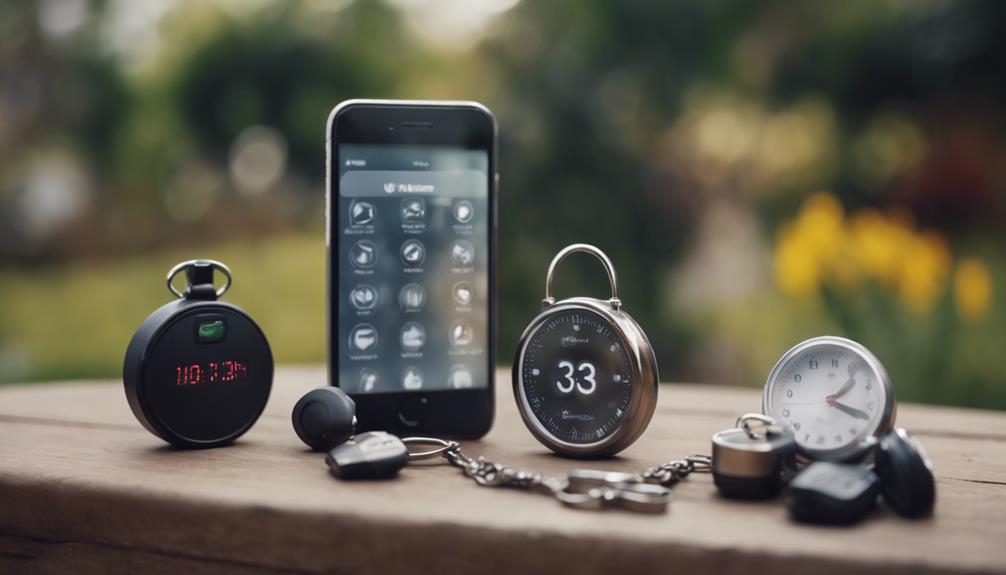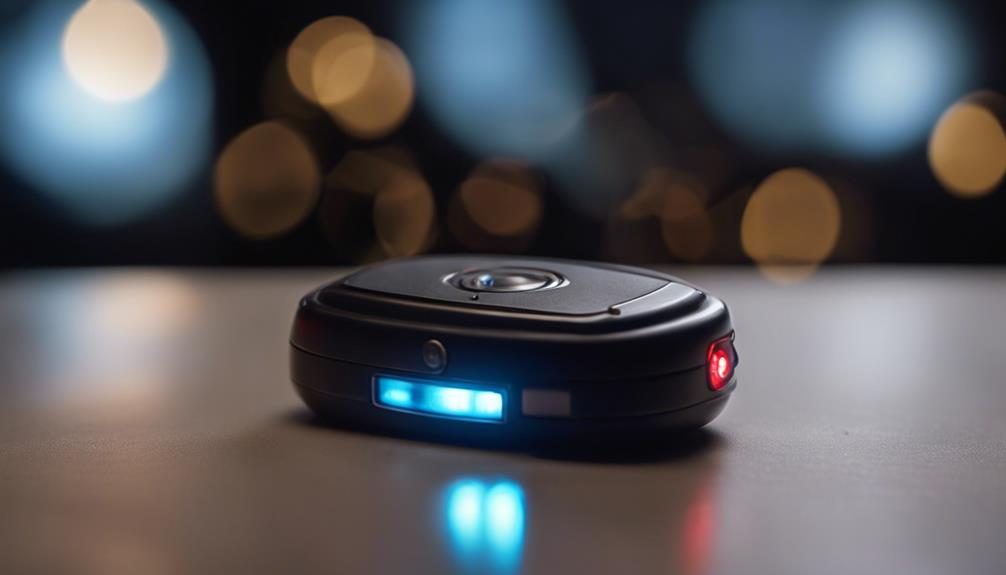
Brainstorm Security Shop

For Orders Over $199

On Any Of Our Products

Details On Refund Page
You’ve likely pondered the idea of carrying a personal alarm, especially when considering your safety in less familiar or potentially risky situations. These compact devices aren’t just for extreme adventurers or night walkers; they’re a practical addition to anyone’s daily safety toolkit. While the concept is simple—an easy-to-activate alert that signals distress—the range of options and features available today can be quite surprising. You might wonder, how exactly can a personal alarm fit into your lifestyle, and what should you look for when choosing one? Let’s explore the answers, and perhaps you’ll discover a new layer of confidence in your day-to-day activities.

Personal alarms are compact devices designed to enhance your safety by emitting a loud sound when triggered. They’re easy to carry around, whether in your pocket, on your keychain, or in your purse, making them a practical choice for everyday safety.
When you’re in a threatening situation, you simply activate the alarm, and its piercing noise can deter attackers and alert bystanders to your distress.
The effectiveness of personal alarms lies in their ability to draw immediate attention. Imagine you’re walking through a deserted parking lot and someone approaches you menacingly. By setting off your personal alarm, you’re likely to startle the assailant and capture the attention of anyone nearby.
This noise can be your first line of defense, buying you crucial seconds to escape or seek help.
Moreover, personal alarms aren’t just for personal attacks. They can be invaluable in a variety of situations where you might find yourself in danger or need urgent assistance. They empower you, giving you a sense of security and confidence when you’re out and about.
Investing in a personal alarm means you’re taking a proactive step towards protecting yourself in an increasingly unpredictable world.
Several types of personal alarms are available, each designed to suit different needs and situations. You might find wearable pendant alarms handy. Typically worn around the neck, these devices are discreet and easily accessible, especially useful if you’re often alone or have health concerns.
Next, there are keychain alarms, which you can attach to your keys or bag. They’re incredibly convenient, so you’ll always have them with you wherever you go.
If you’re sporty or enjoy nighttime jogging, consider wristband alarms. These are designed to be worn like a watch, blending seamlessly with athletic wear while providing security at your fingertips.
For those who prefer something less conspicuous, consider smartphone apps that function as personal alarms. These apps can send your location to emergency contacts or emit a loud sound to deter attackers.
Lastly, there are wall-mounted alarms, perfect for installing in and around your home for added security. These can be placed at strategic points, like near entryways or in secluded areas of your property, ensuring you’re alerted to any unwanted presence.
Each type offers a unique way to help protect yourself, so it’s worth considering which one aligns best with your lifestyle and daily routines.

Carrying a personal alarm offers you immediate download to a safety measure in threatening situations. It’s a simple tool, but its impact can be profound. With this device, you’re never truly alone; help is literally a button press away. This sense of security is invaluable, especially if you’re walking through less crowded areas or during odd hours.
The loud noise emitted by personal alarms can serve multiple functions. Primarily, it’s a deterrent; the piercing sound can startle and disorient an attacker, giving you crucial seconds to escape or draw attention. This noise also acts as a call for help, alerting anyone nearby to your distress.
Unlike other defensive tools, personal alarms are legal everywhere, providing a non-violent way to protect yourself without the risk of legal repercussions.
Moreover, these devices are incredibly user-friendly. They don’t require extensive training or physical strength to operate, making them suitable for everyone regardless of age or ability. The simplicity and effectiveness of personal alarms empower you to take charge of your own safety.
You’ll walk with more confidence, knowing you have a way to protect yourself that’s both immediate and effective.
Now that you understand the benefits of personal alarms, let’s explore how to effectively use them in emergencies.
First off, you’ll need to carry your alarm where you can easily access it—perhaps on a keychain, in a purse, or even attached to a belt loop. It’s crucial that it’s not buried at the bottom of a bag where you can’t reach it quickly.
Practice is key. Familiarize yourself with the mechanism, whether it’s a pull pin, push button, or another trigger method. You should be able to activate it swiftly and without looking. Try it out several times in a safe environment so your reaction becomes second nature.
When you find yourself in a threatening situation, don’t hesitate to use your alarm. Activate it to create a loud noise which can deter an attacker and alert others nearby. Keep it sounding while you move to a safer place or until help arrives. Remember, the noise is your ally, buying you crucial seconds.
After use, ensure your safety is secured and then deactivate the alarm if it’s still sounding. Reassess the situation and seek help immediately, whether it’s calling 911 or contacting someone close by who can assist.

When selecting a personal alarm, consider factors like volume, ease of use, and portability to ensure it meets your safety needs. You’ll want an alarm that’s loud enough to draw attention in an emergency, typically around 120 to 130 decibels. It should be straightforward to activate; in a crisis, you won’t have time to fumble with complicated mechanisms.
Consider the size and weight of the alarm. It should be convenient to carry, whether in a pocket, on a keychain, or in a purse. Look for models that offer additional features like a flashlight or GPS tracking, which can be invaluable in a dangerous situation.
It’s also important to check the durability of the alarm. You’ll need something that can withstand rough handling and won’t easily break. The battery life is crucial too; the last thing you need is for your alarm to fail when you need it most. Opt for models with long-lasting batteries or those that provide easy battery replacement.
Now you’re equipped with the knowledge about personal alarms—how they work, the types available, and their benefits.
Remember, choosing the right alarm is crucial for your peace of mind. Practice using it until you’re comfortable; it should feel like a natural part of your safety routine.
Carry it everywhere, and let this simple tool empower you to feel safer and more confident, no matter where life takes you.
Stay alert and stay safe!

Brainstorm Security Shop
1867 Caravan Trail
Ste 105
Jacksonville, FL 32216
Call us toll free: (800) 859-5566